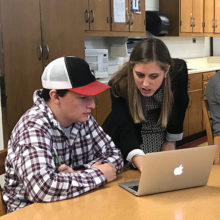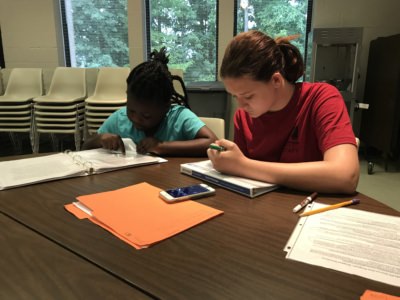
The first week of school is an exciting and nerve-wrecking time for beginning teachers. Depending on their path to the classroom, it may be some new teachers’ first time in charge of a classroom, or at least their first time without a mentor teacher in the room. For second-year teachers, the beginning of the school year represents a fresh palette — a chance to fix any mistakes from the past year and set ambitious goals for the coming year.
For first- and second-year teachers in 15 districts, the beginning of this school year also brings a new partnership with Wolfpack WORKS (Ways to Optimize Reading/Writing for Kids Statewide), a one-year pilot initiative of Read to Achieve focused on helping beginning K-2 teachers implement high-quality literacy instruction in their classrooms. The initiative is a partnership between NC State and NC Department of Public Instruction (DPI).
“We are really excited about this opportunity and partnership with NC State to provide this support for beginning teachers,” said Rebecca Belcastro, K-3 district literacy consultant for DPI. “I think [teachers] are going to find that it is a benefit for [them] in the first couple years.”
“We can do more together,” said Jill Grifenhagen, assistant professor at NC State and primary investigator for Wolfpack WORKS. “With the college of education working with DPI and all the school districts, we think we can do more together.”
Wolfpack WORKS originated out of conversations between NC State and DPI looking at the larger context of Read to Achieve.
“One thing all of us know is getting kids to read by third grade doesn’t start in third grade,” Grifenhagen explained. “We also know that the work of beginning teachers is important and particularly challenging … We’re all here to support beginning teachers and to work towards the goal of all of our students in North Carolina being able to read and write effectively.”
Through Wolfpack WORKS, first- and second-year K-2 teachers in 15 high-need districts will receive blended professional development, literacy-specific coaching, and literacy resources. So far, over 100 teachers across the 15 districts are signed up, although principals are still hiring so that number may grow.
The 15 districts can be seen in the map below. They are: Kannapolis City Schools, Anson County, Scotland County, Caswell County, Vance County, Warren County, Halifax County, Northampton County, Nash/Rocky Mount, Edgecombe County, Martin County, Washington County, Bertie County, Duplin County, and Green County.
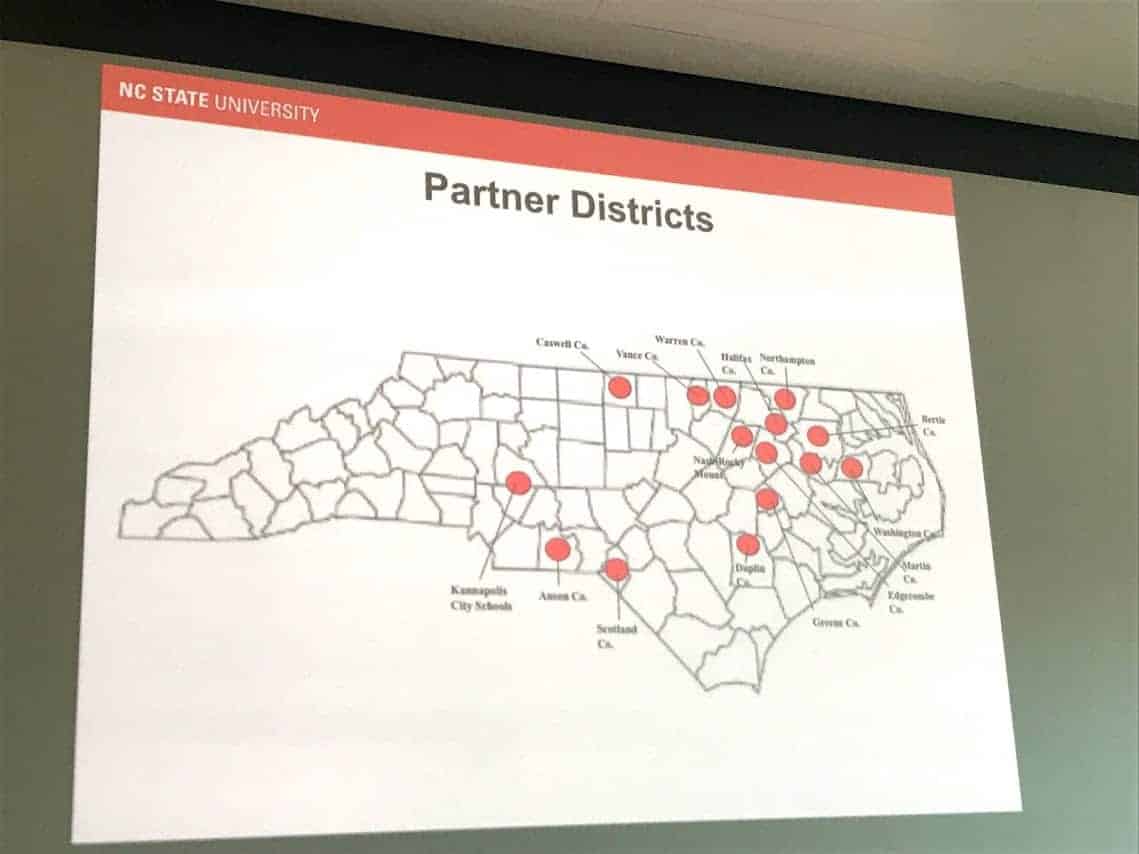
The Wolfpack WORKS leadership team worked with DPI to select districts to participate based on third grade reading trends over the past four years.
“What we actually looked at was trends over the past four years,” said Grifenhagen. “[We looked] at the districts that were lowest performing on [third grade reading scores] over the past few years.”
The districts that have signed up to participate will receive a number of supports and resources for their beginning K-2 teachers.
Teachers will receive three face-to-face professional development sessions throughout the year, weekly coaching sessions with a dedicated literacy coach, access to 10 online learning modules focused on the 10 Wolfpack WORKS essential practices, and access to supplementary resources, such as funding for books or informational texts.
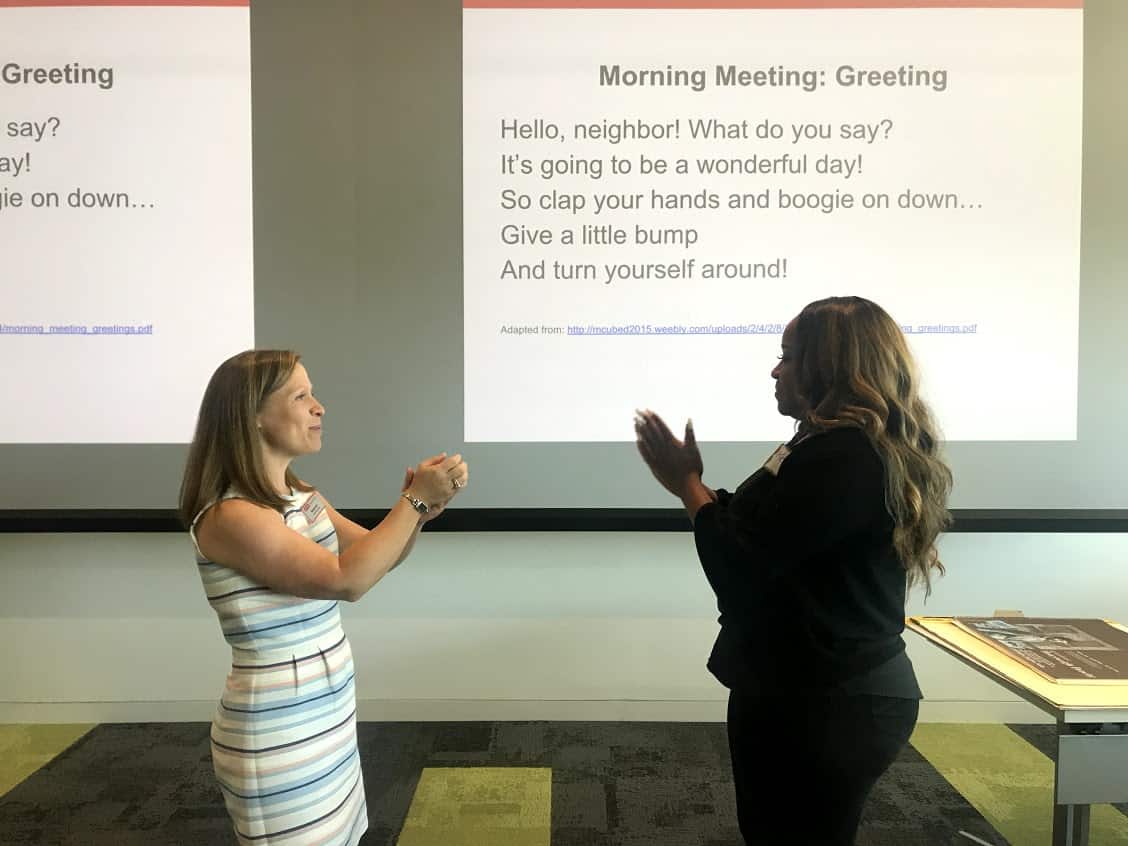
“Throughout the year [beginning teachers will] be engaged in professional development through online modules that we’re going to develop,” Grifenhagen stated. “All of that professional development will be targeted to evidence-based K-2 literacy practices.”
Each school district that participates will also receive funding to hire literacy interventionists (one for every seven beginning teachers) who will work with the teachers and focus on assessment, progress monitoring, and interventions for struggling students.
“We hear from first-year teachers, particularly in high-need districts, [that] one of the challenges is implementing the progress monitoring interventions in Read to Achieve,” Grifenhagen said.
Ann Harrington, teaching associate professor at NC State and co-primary investigator, added, “If a beginning classroom teacher uses so much time doing the assessments and the interventions, then classroom instruction goes by the wayside.”
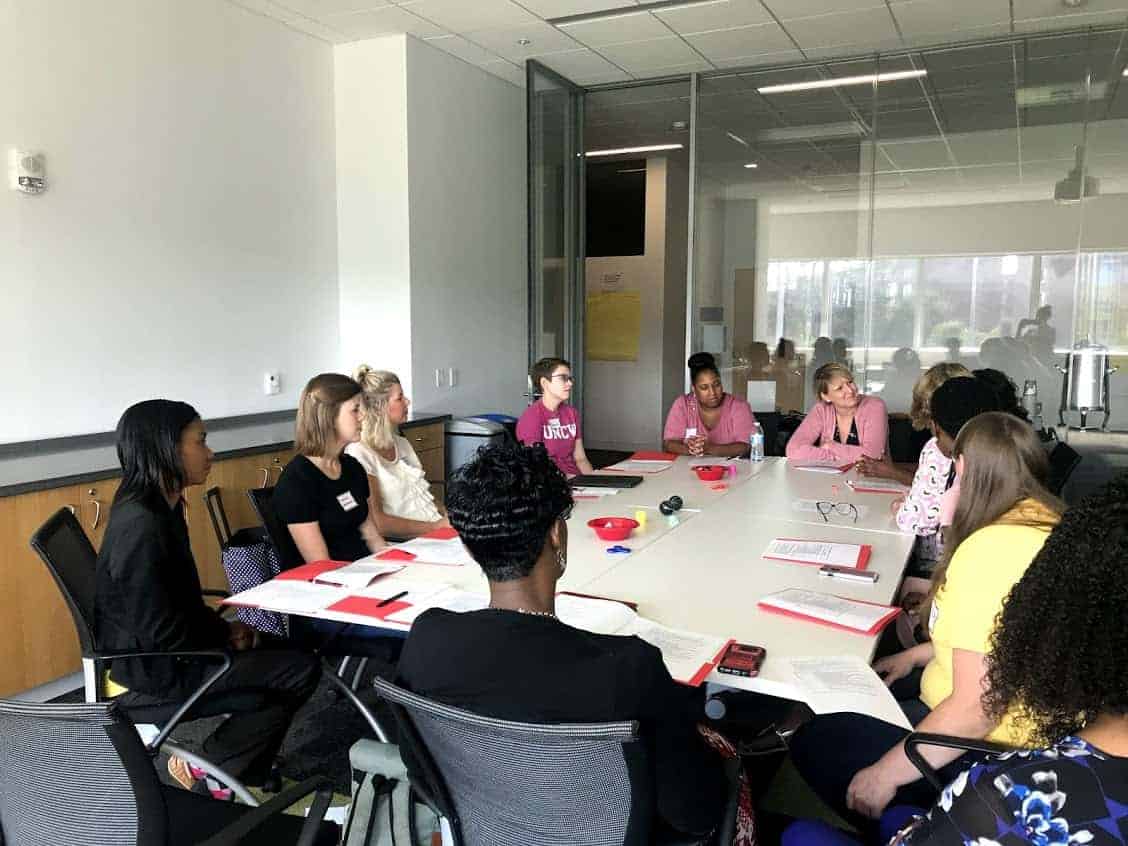
The Wolfpack WORKS leadership team worked with an advisory council to identify the evidence-based K-2 literacy practices that make up their 10 essential practices. The practices build on the work of a Michigan-based early literacy task force, adjusted to reflect North Carolina standards and context. The 10 essential practices are:
- Organize and manage the literacy environment to build classroom community and maximize instructional time
- Foster literacy engagement and motivation to deliberately promote the joy of reading and writing
- Read aloud a variety of high-quality books and other materials for a range of purposes
- Provide explicit instruction and guided application in phonological awareness and word identification skills and strategies
- Observe and assess language and literacy development to inform and differentiate instruction based on students’ strengths and needs
- Immerse students in a literacy environment that includes abundant reading materials and ample opportunities to read connected text to promote fluent reading
- Build vocabulary and content knowledge through intentional and ambitious efforts
- Teach students how to comprehend increasingly complex narratives and informational texts
- Create daily opportunities for students to write for a variety of purposes and audiences throughout the day
- Collaborate with families to promote literacy across home and school contexts
Each practice has a set of indicators to help teachers break down the practice into manageable actions. Teachers and administrators were introduced to these practices during their first professional development session in August, and teachers will explore each one in depth through online modules during the year.
Grifenhagen and Harrington made clear that Wolfpack WORKS is not a program but rather an initiative focused on building teachers’ literacy skills.
“In the end, programs don’t teach children,” said Harrington. “Who teaches children? Teachers.”
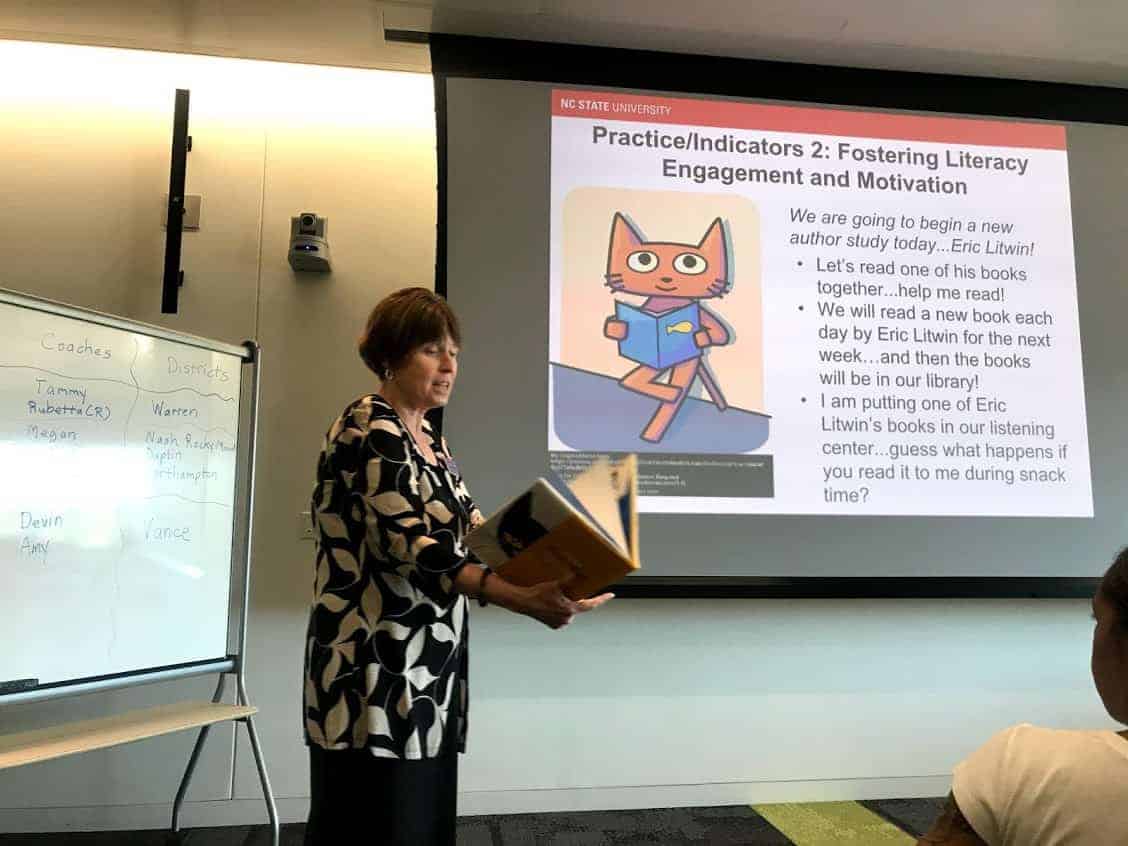
During their first day of face-to-face professional development, Harrington modeled a series of activities corresponding to the first four essential practices.
For the first essential practice, Harrington led the group in a morning meeting activity, modeling how teachers can use morning meetings to set the tone for the day with their students.
For the second essential practice, she modeled a read aloud, demonstrating how teachers can use author studies to build motivation and joy for reading.
Wolfpack WORKS coaches then led teachers and administrators in a discussion about the first four essential practices.
“If you don’t have a consistent behavior management system that is clear, your best plans are going to fall apart,” one administrator stated in reference to the importance of the first essential practice — organizing and managing the literacy environment to build classroom community and maximize instructional time.
Kendrick Alston, principal of Williford Elementary in Nash/Rocky Mount, also spoke about the importance of sitting down with all teachers to plan classroom systems and routines before school starts so nothing is left to chance. “Teachers who come with a lateral entry background haven’t had the same background and student-teaching experience. We have to support them and not assume they know something.”
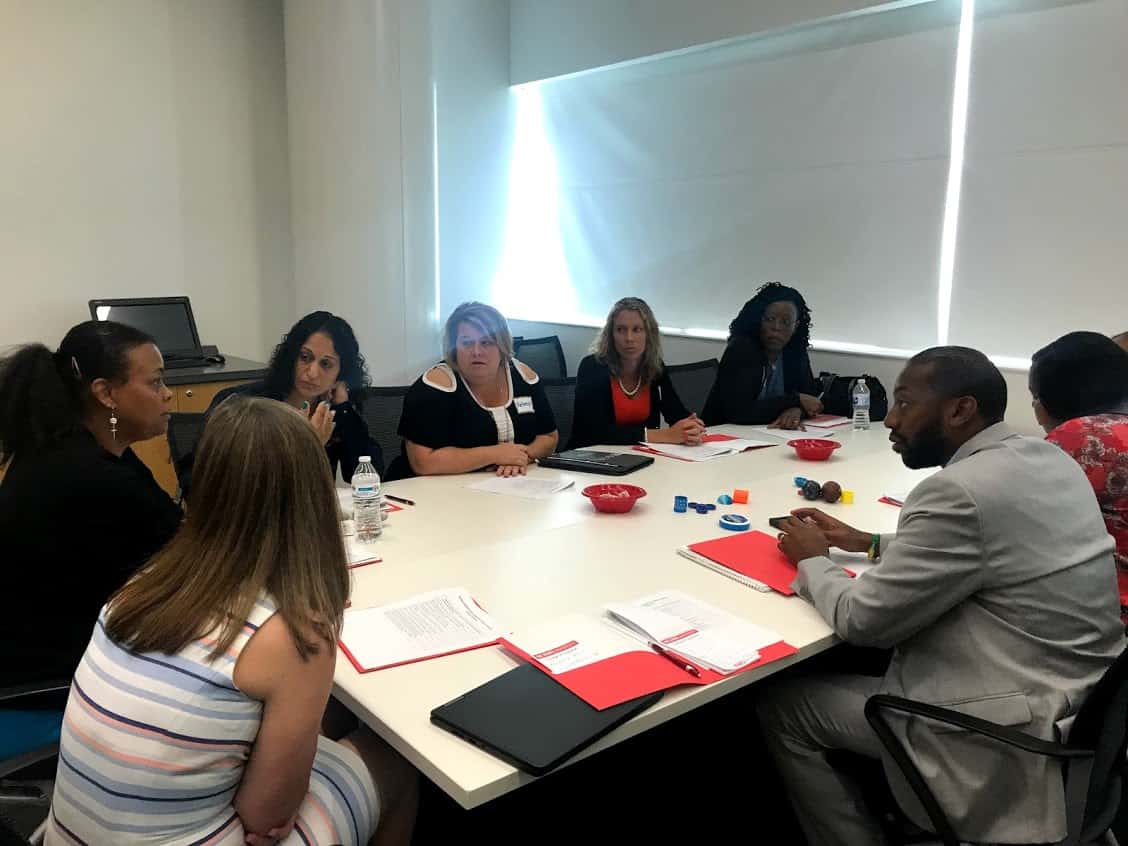
Teachers and administrators discussed their strengths and weaknesses in implementing the second practice, fostering literacy engagement and motivation to deliberately promote the joy of reading and writing.
Megan Ray, a literacy coach, shared that for her, giving students choices in literacy activities is the hardest. Alston shared that he struggles with not using reading or writing as a punishment, both with his own kids and his students.
“We’ve all done that at some point,” he said, “and it goes to the core of why kids don’t like to read today.”
Over the next day and a half, teachers learned about the rest of the essential practices and began initial planning with their coaches. They will meet face-to-face again for whole-group professional development in the winter and the spring, but until then teachers will work with coaches once a week as they progress through the online modules.
Listen to the recent EdTalk podcast with Paola Sztajn to learn more about Wolfpack WORKS:
https://www.ednc.org/edtalk/2018/07/31/wolfpack-works-gets-ready-to-bolster-literacy-efforts/?utm_source=EdNC+Subscribers&utm_campaign=f9888f067a-Daily_Digest&utm_medium=email&utm_term=0_2696365d99-f9888f067a-245873021
